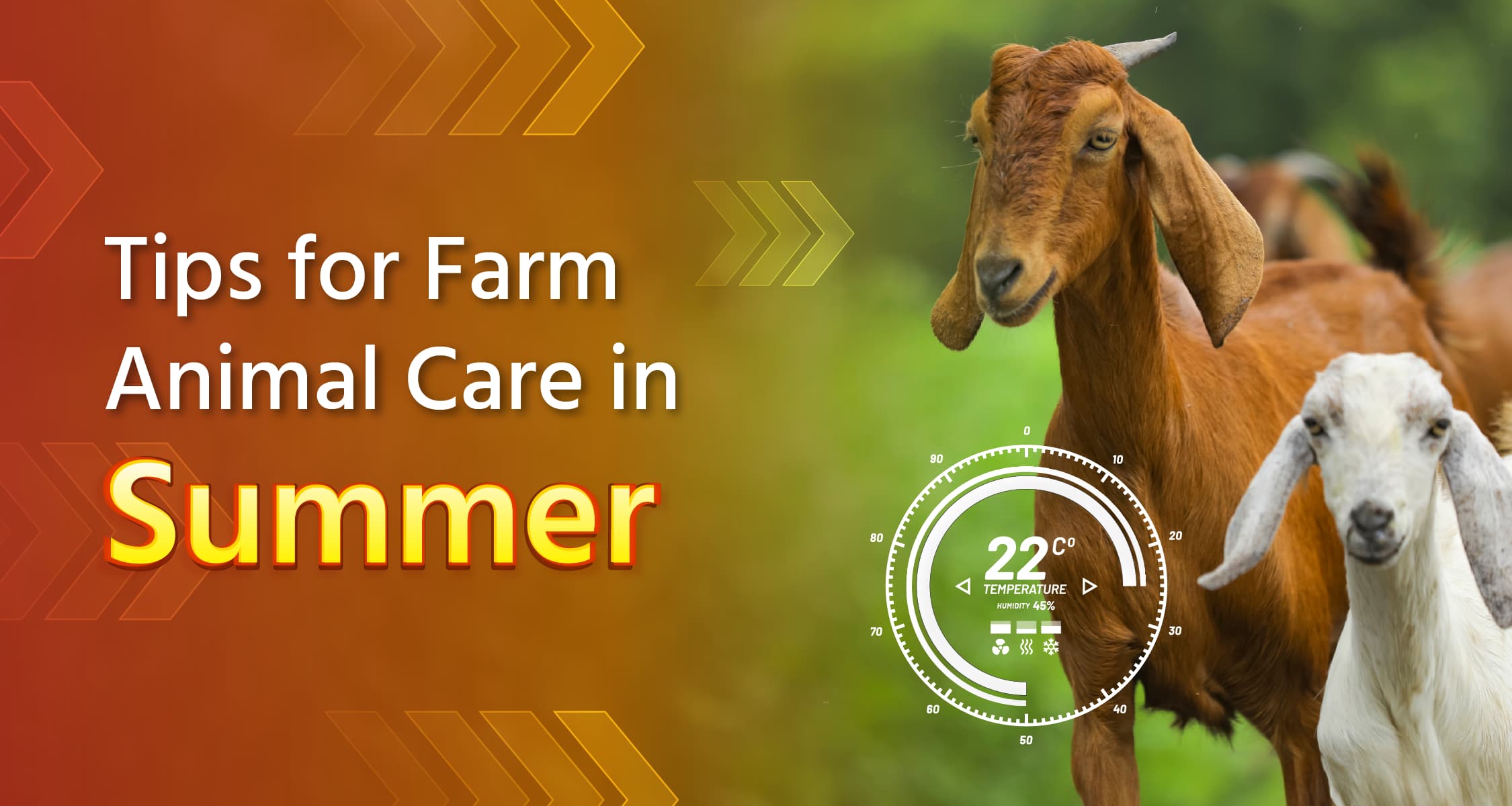Important Tips for Animal Care in Summer

Animals require special care in hot weather. It is essential to protect animals from scorching heat and hot winds. Stress caused due to heat in animals reduces milk production. Sometimes, if treatment is not provided promptly during a heatwave, animals can die. Therefore, it is necessary to have knowledge related to the care of animals in summer to prevent heatstroke. Read this post carefully to know how to take care of animals in summer and methods to prevent heatstroke.
Symptoms of Heat Stroke in Animals
- Food intake of animals gets reduced due to the effects of heat.
- The eyes of affected animals turn red.
- The heart rate of animals increases.
- Affected animals often protrude their tongue and sit with it outside.
- Blood starts to come from the noses of animals affected by the heat.
- The body temperature of animals rises above 104°F.
- Muscles of animals start to tremble.
- Their heart rate increases, and due to weakness, animals sit lazily.
- The digestive system gets adversely affected due to heatstroke for which the animals suffer from diarrhea.
Consequences of Heat on Animals
- Decreased Milk Production: Excessive heat can lead to a decrease in milk production in animals.
- Reduced Fat Content in Milk: During hot weather, the fat content in the milk of animals decreases, which can lower its nutritional value.
- Weakened Immune System: Animals' immune systems weaken in hot weather, making them more susceptible to diseases, and increasing the likelihood of them falling ill quickly.
- Health Issues: Heatstroke can adversely affect the health of animals, reducing their productivity. Additionally, reproductive problems may arise, and without proper treatment, mortality among animals is also possible.
- Increased Mortality of Newborns: Newborn animals cannot tolerate extreme temperatures well, leading to an increased mortality rate due to heatstroke.
- Likelihood of Fetal Death: Heatstroke in female animals can increase the likelihood of fetal death, leading to reproductive issues among animals.
Measures to Protect Animals from Heat Stroke
- Do not keep animals exposed to the sun.
- Keep animals in their shelters.
- It is essential to cover windows with shades to reduce the impact of sunlight and heat on animal shelters.
- Animals should be bathed with cold water at least twice a day to help maintain their body temperature and protect them from the effects of heat.
- Including green fodder in the animals' diet is necessary. Green fodder provides nutrients and protein essential for maintaining their health.
- Provide clean and cold water for animals to drink at least three times a day. This will prevent dehydration and make it easier for them to cope with the effects of heat.
- Planting trees around animal shelters for cool air and shade is also very important.
- Animals affected by heat stroke should be taken to a veterinarian immediately. Timely treatment can improve their condition and save them from further complications.
What method do you adopt to save animals from heat? Let us know your answer through comments. For more information related to the health and diet of animals, follow the 'Pashu Gyan' channel now. Also, don't forget to like and share this post.
Frequently Asked Questions (FAQs)
Q: How to protect animals from scorching heat?
A: To protect animals from heat, keep them in shaded areas. Provide them with clean and cool water to drink. Install shades on the windows of their shelters to protect them from hot air. Bathe animals with cold water. Arrange for fans or other cooling mechanisms in their shelters if necessary.
Q: What are the symptoms of heatstroke?
A: There are several symptoms of heatstroke in animals, including high body temperature, rapid heartbeat, weakness, lethargy, trembling muscles, red eyes, diarrhea, rapid breathing, etc. If these symptoms occur, immediately consult a veterinarian.
Q: What should be done immediately in case of heatstroke?
A: In case of heatstroke, clean the animals' bodies with wet cloths. Offer them enough water to replenish the water lost from their bodies. Keep animals protected from hot air, and contact a veterinarian immediately as soon as possible.
जारी रखने के लिए कृपया लॉगिन करें

फसल चिकित्सक से मुफ़्त सलाह पाएँ
